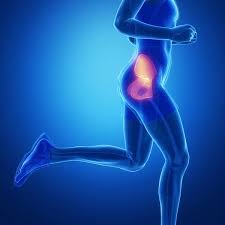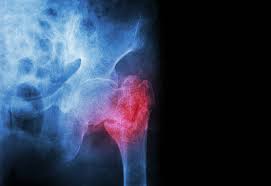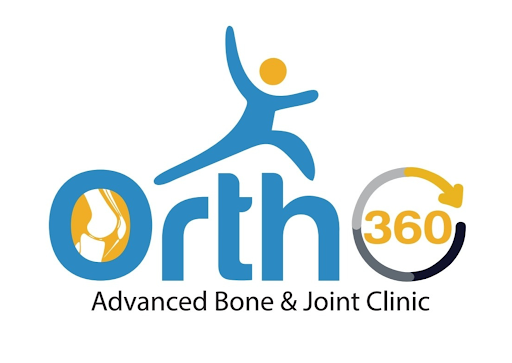- 081819 45945
- Working Hours : 2 PM-8 PM
Best Hip Surgery Doctor - Ortho 360
- Home
- Hips & Pelvis
Best Hip and Pelvis Surgery
Hip Fracture
What is Hip fracture ?
This is an orthopedic condition where we notice a break or a crack in the upper region of the thigh bone (femur), which is close to the hip joint. Those who are older are at higher risk of this kind of fracture.
What are the symptoms ?
Following are some of the symptoms for Hip fracture :
- Swelling around the hip
- Severe pain in hip or groin area
- Stiffness
- Difficulty in movement
- Shortening of leg
- Inability to walk or stand
Treating the fracture in early stages is necessary in order to prevent complications
What are the causes ?
Some of the causes for hip fractures are stated below :
- Some long term medications weaken bones increasing the risk of fractures.
- Some kind of cancer in bones can also increase the risk of hip fracture
- Fall and accidents
- Osteoporosis is a condition where the bones become brittle increasing the risk of fractures
- Aging can be another cause for it.
How to prevent Hip fractures ?
Some of the tips to prevent Hip fractures are as follows :
- Regular exercising to maintain muscle strength and good bone health
- Include calcium and vitamin D in your diet
- Wearing proper footwear to avoid falls
- Don’t ignore the symptoms of osteoporosis (back pain, loss of weight , stooped posture)
- Say no to alcohol and smoking
- Regularly checking your bone density to ensure proper bone mass.
Who is at risk ?
- Women are at high risk of hip fracture when compared to men due to their low bone density and hormonal imbalances.
- Aged people are susceptible to fractures as their bones become more fragile as they age.
- Poor nutrition can lead to reduced bone mass, which puts people at risk of fracture.
- Certain medical conditions like Parkinson’s disease, Alzheimer’s, etc. can make the patient fall and cause hip fractures.
Apart from the above mentioned conditions, there are several other reasons that can cause a person to fall and break a bone
How is it identified ?
X-rays , MRI , CT scan tests are some of the ways to detect the broken bones in your hip region.
How is it treated ?
- Non surgical ways : Certain medications like pain relievers and injections are given to treat hip fractures
- Surgical methods : surgeries are done in severe cases and some of the surgical ways are
- Hip replacement
- Total hip arthroplasty
- Internal & External fixation
- Open reduction
- Hemiarthroplasty
There are several other surgical methods depending on the severity of the condition.

Avascular Necrosis

What is Avascular necrosis ?
When there is a loss of blood supply to the bone tissue, it gets dead, which leads to avascular necrosis. It is also known as ischemic bone necrosis. Most commonly, it is found in bones in the hip region. When the bone tissue doesn’t receive enough oxygen and nutrients, it affects the bone cells, which can die and lead to the damage of the entire bone.
What are the symptoms ?
There are several symptoms that are associated with the condition. Below are some of the symptoms of avascular necrosis :
- Joint pains
- Difficulty in moving and walking
- Stiffness
- Damage of bone
- Pain in groins
- Pains when carrying loads
What are the causes ?
Some of the causes of this medical conditions are :
- When there is any fat accumulation in blood vessels the blood supply to the bones is reduced and the bones get weaker leading to avascular necrosis .
- In some cases injuries can lead to this medical condition
What are the medical conditions that are associated with it ?
- Diabetes
- HIV
- Anemia
- Gaucher’s disease
- Inflammation of pancreas
What are the risks for getting avascular necrosis ?
Below are some of the risk factors of this medical condition :
- Radiation therapy
- Trauma
- Joint surgery
- Organ transplantation
- Sickle cell anemia
- Over alcohol consumption
- Lupus
- Disorders involving blood clotting
How is it identified ?
Through functional evaluation of bones, X-rays , MRI’s CT scan , Radionuclide scanning of bones are some of the methods used to detect avascular necrosis.
How is it treated ?
Treatment is given taking several facts into consideration such as :
- Age
- Severity
- Medical history
- Cause of the condition
And several other factors are taken into consideration
Non surgical methods
Below are the non surgical methods used to treat :
- Regular exercises
- Drugs to reduce cholesterol
- Anti inflammatory drugs (non steroidal)
- Drugs of osteoporosis
- Blood thinner drugs
- Electrical stimulations
Surgical methods
Below are some surgical methods used to treat avascular necrosis :
- Resection arthroplasty : In this method a part of the joint is removed to reduce pain and promote the movement
- Arthroscopy : In this method a small sized camera is used to see and treat the affected bone
- Joint replacement : In this method the affected joint is replaced by artificial implants
- Bone grafting technique : In this method the damaged bone tissue is replaced by another bone tissue of the same body or donor.
Osteotomy : In this method the bone is reshaped by cutting to reduce pain and distribute weight equally.
Acetabulum Fractures
What is acetabular fracture ?
It is described as a condition where you notice damage in the socket region of the hip, which is nothing but the acetabulum (a socket region of the pelvis that forms the hip joint). It is a type of hip fracture.
What are the causes ?
This fracture is caused by high-force trauma like accidents, falling from heights, etc. In major cases, we see extensive blood flow, which needs immediate medical care. When the force on the hip is in some specific direction, then the upper part of the thigh bone dislocates from the socket and leads to an acetabulum fracture.
What are the symptoms ?
Some of the symptoms of this kind of fracture are stated below :
- Pain in Hip or groin
- Discomfort in walking and running
- Inflammation in hip region
- If there is any nerve injury then we may notice numbness and tingling
How is it identified/diagnosed ?
Here are some ways to diagnose acetabulum fracture :
- Physical examination : doctor examine physically to detect any swelling near hip region and other physical symptoms
- Imaging tests : X-Ray , MRI , CT scan is used to detect the damaged bone inside the body
- Medical history : Patient might have a history of car accident or any high force trauma that may lead to acetabulum fracture if not well treated
- Injuries
What are the non surgical ways to treat it ?
The treatment is based on the severity of the fracture. Below are some non surgical ways to treat acetabulum fracture :
- Brace : Using a brace or splint to keep the damaged region immobile until it gets healed.
- Physiotherapy : this method is recommended to restore the free motion of the body , strength to muscles and also to avoid stiffness that is caused due to fracture.
- Wheelchair or crutches : patients are suggested to avoid carrying heavy weights and putting stress on affected legs and are also suggested to use crutches or wheelchairs.
What are the surgical ways to treat acetabulum fractures ?
Below are some surgical methods to treat :
- Arthroscopy assisted reduction : In this method a small camera is used to see the damaged bones and screws are used to fix the broken bones.
- Open reduction and internal fixation : in this method the damaged bones are re positioned using screws
- Total hip replacement surgery : in elderly patient total hip replacement surgery is done to replace the hip joint
After surgery , some may go through some complications due to the surgery done such as avascular necrosis , infections , blood clot etc.

Hip Arthritis

What is Hip Arthritis ?
Hip arthritis is a condition where the cartilage at the hip joint wears down or if it gets damaged leading to pain and discomfort
What are the causes ?
Below stated are some of the causes for hip arthritis :
- Infections
- Wear and tear
- Trauma
- Inflammatory condition
- Genetics
What are the symptoms of Hip arthritis ?
Below are some of the symptoms of hip arthritis :
- Pain
- Stiffness
- Inability to move
- Inflammation or swelling
- Grinding sensation
Who is at risk ?
Many aspects can put someone at risk of arthritis. Below stated are some of the risk factors:
- People who have damaged joints are at risk of getting hip arthritis
- Age can be one of the reasons; as people age, the risk of arthritis increases.
- Carrying heavy load for long duration can put people at risk of hip arthritis
- Women are generally at more risk than compared to men
How is it identified ?
A physical examination is performed to determine whether you have pain when moving your hip, and radiographs and X-ray image tests are performed to detect hip bone damage.
How is it treated ?
Treatment is done by the doctor based on the severity of the conditions. Below are some non surgical and surgical methods to treat Hip arthritis
Non Surgical methods
- Anti inflammatory drugs
- Corticosteroid injections to stop the inflammation
- Physiotherapy
- Changes in lifestyle like balanced diet, regular exercises etc
Surgical methods
- Total Hip replacement surgery
- Osteotomy
Pelvic Fracture
What is pelvic fracture ?
Usually the pelvis is made up of two hip bones, the sacrum and coccyx. Pelvic fracture is a condition where any of the above-mentioned bones that form the pelvis get damaged, leading to severe pain and discomfort.
What are the causes ?
Below stated are some of the causes for pelvic fracture :
- Accidents
- Trauma
- Pregnancy deliveries/Childbirth
- Sports injuries
- Osteoporosis
- Abuse
What are the symptoms ?
Some of the symptoms for pelvic fractures are as follows :
- Severe pain
- Difficulty in walking
- Inflammation
- Pain in bowel region
- Inability to carry loads
- Bruising
- Pain in abdominal region
- Tingling sensation
Who is at risk ?
- Sports person
- Aged people
- People with weak bones or low bone strength
- Osteoporosis sufferers
How is it identified or diagnosed ?
Below are some of the methods used to identify pelvic fracture :
- X-rays
- CT scans
- Physical examination
- Ultrasound
- Angiography
- Urethrography
- Cystography
How is it treated ?
The treatment is based on the severity of the condition. Based on the severity below are some of the non surgical and surgical methods to treat pelvic fracture
Non Surgical methods
- Medications: some sort of medicines to reduce pain are given,anti inflammatory drugs are also given to treat this pelvic fracture
- Brace/splint : A brace is used to hold the region and keep it immobile until it gets healed.
- Physiotherapy
- Ice and heat
- Walkers and wheelchairs to avoid stress in movement
Surgical methods
- Hip replacement surgery
- Screws and some alternatives are used to fix the bones in some fixation treatments


